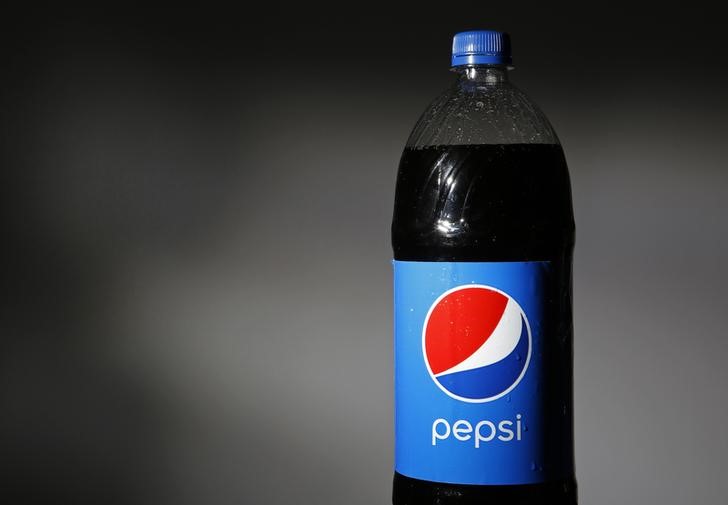Investing.com’s stocks of the week
Given that the festive season is all but upon us, the shares of popular snacks and beverages company PepsiCo (NASDAQ:PEP) have gained significantly over the past few days, hitting their 52-week price high earlier this week. The company is a dividend aristocrat, with a record of 49 years of consecutive dividend growth. PEP also has a stable cash position. So, is PEP a buy now? Keep reading to learn the answer.PepsiCo, Inc. (PEP) in Harrison, N.Y., is a well-established player in the beverage industry, with a $229.95 billion market capitalization. PEP’s shares have gained 14.2% in price over the past year and 12.1% year-to-date to close their last trading session at $166.31. The stock is trading above its 50-day and 200-day moving averages and just below its 52-week high of $167.29, which it hit on December 6.
The company’s revenue topped analysts’ expectations in its last reported quarter. Its net sales rose 11.6% to $20.19 billion, versus a $19.39 billion consensus estimate. Its adjusted earnings per share were $1.79, topping the $1.73 consensus estimate by 3.5%. However, management cited supply chain disruptions and inflationary pressures on labor, commodities, and transportation to have weighed down the company’s earnings. PEP also raised its full-year organic revenue growth forecast to 8%, up from its earlier forecast of 6% growth.
The company is a dividend aristocrat with a strong dividend growth history. PEP’s $4.30 annual dividend yields 2.59% at the current share price. On November 18, PEP declared a $1.08 per share quarterly dividend, representing a 5% increase versus the year-earlier period. The dividend is payable on January 7, 2022. This year marked the company's 49th consecutive annual dividend increase. PEP’s dividend payouts have increased at a 5.8% CAGR over the past three years and a 7.5% CAGR over the past five years. PEP also has a solid cash position, which facilitates the returns to its shareholders. Its trailing-12-months levered free cash flow, and net operating cash flow came in at $4.29 billion and $11.12 billion, respectively.
